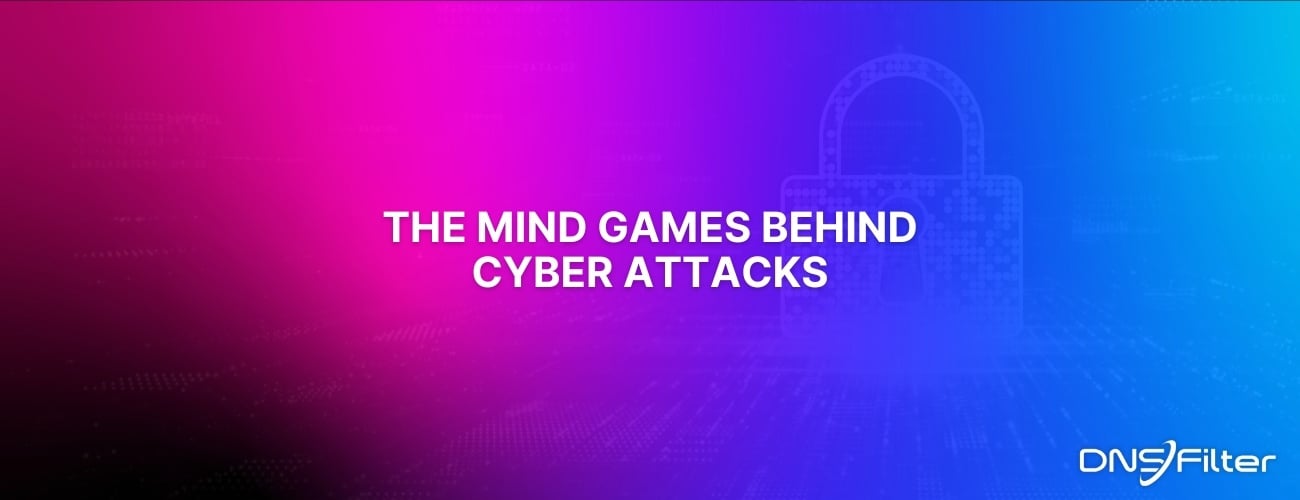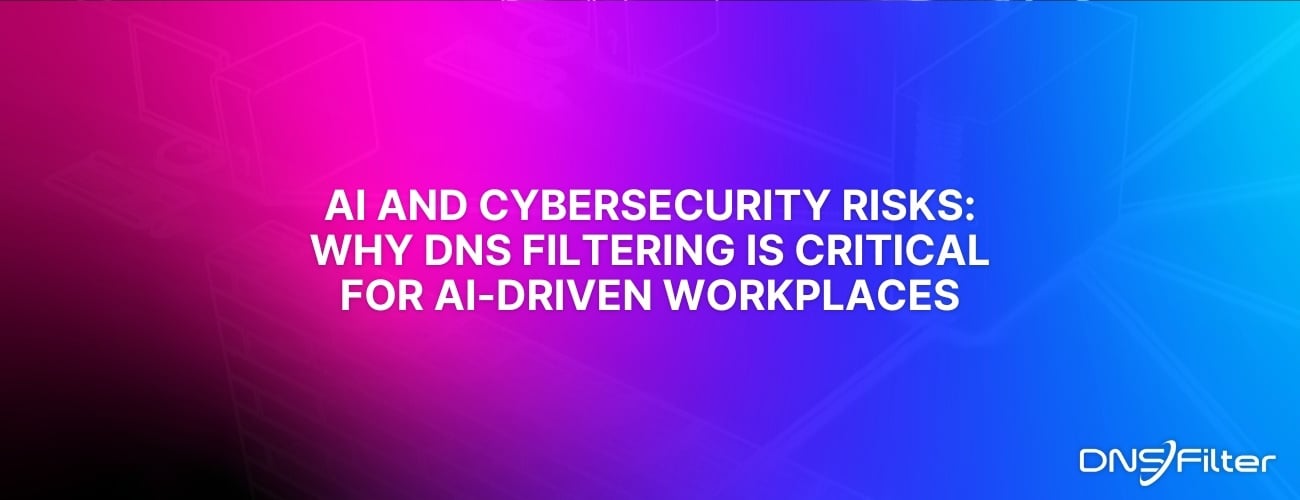Share this
From Reactive to Proactive: How to Create a DNS Security Strategy that Stops Attacks
by Kory Underdown on Dec 16, 2024 10:36:02 AM
Most businesses only think about DNS security after an attack has already occurred. By then, the damage is done - downtime, lost revenue, compromised data, and a tarnished reputation. In an environment where cyber threats are constantly evolving, a reactive approach to DNS security simply isn’t enough.
What if you could prevent all of this with a proactive DNS security strategy? A strategy that stops threats before they escalate, ensuring your business runs smoothly and securely. This article will show you how to go from reacting to attacks to preventing them altogether. By taking proactive measures to secure your DNS, you can protect your business, reduce risks, and stay one step ahead of cyber threats - all while ensuring the continuity of your critical operations.
Why Companies Should Care About DNS Security
Your Domain Name System (DNS) is at the core of your business’s digital infrastructure, directing customers to your website and keeping your operations running smoothly. But DNS is also a common target for cyberattacks, making it a key vulnerability that needs to be addressed.
DNS Filtering as a Competitive Advantage
A proactive DNS security strategy can give your company an edge over competitors. Here’s how:
- Customer Trust: Customers are more likely to trust and do business with companies that demonstrate a commitment to protecting their data. By securing your DNS, you can reassure customers that their information is safe.
- Minimized Downtime: DNS filtering helps ensure that your services remain available, even in the face of cyberattacks. This reliability translates to better customer satisfaction and uninterrupted operations.
- Regulatory Compliance: Implementing DNS security measures helps you stay compliant with data protection regulations, reducing the risk of costly penalties and protecting your brand reputation.
By treating DNS security as a business priority, you’re not just protecting against threats - you’re actively positioning your company for success in an increasingly digital and interconnected world.
How to Build a DNS Strategy
To create a proactive DNS security strategy, it’s essential to align it with your broader business objectives. Here’s how to get started:
- Evaluate Your Current Setup: Assess your existing DNS infrastructure for any vulnerabilities. Work with your IT team to identify weaknesses and areas that need improvement. This assessment will help you understand the current state of your DNS and lay the foundation for a more secure strategy. Download our eBook to learn how.
- Define Your Security Goals: Align your DNS security strategy with your business goals. Whether it’s minimizing downtime, protecting customer data, or achieving compliance, understanding your objectives will help guide your approach.
- Choose the Right Tools: Selecting the right DNS filtering solution is critical. Look for a provider that offers advanced threat detection, scalability, and integration with your existing security stack. The right tool will enable you to proactively block malicious domains and prevent threats from impacting your business. Explore our eBook for more guidance.
How to Choose the Right DNS Solutions
A successful DNS security strategy requires the right technology. Here are some key considerations when choosing a DNS filtering solution:
- Scalability: Ensure that the DNS solution can grow with your business, accommodating an increasing number of users and devices without compromising security.
- Advanced Threat Detection: Look for features like machine learning and AI-driven threat detection to stay ahead of emerging threats. The ability to detect and block phishing, malware, and other malicious activities is essential.
- Ease of Integration: Choose a solution that integrates smoothly with your existing IT infrastructure. A well-integrated DNS security tool will enhance your overall cybersecurity posture without adding unnecessary complexity.
- Real-Time Analytics and Reporting: Having visibility into DNS traffic is crucial. Make sure the solution provides real-time analytics and reporting capabilities to help you monitor and respond to potential threats quickly.
A proactive approach to DNS security isn’t just about having the right tools- it’s about ensuring those tools are effectively implemented to protect your entire digital ecosystem. By choosing a solution that aligns with your needs, you can enhance your security posture and keep your business resilient against evolving cyber threats.
The Long-Term Benefits of a Secure DNS Strategy
A well-implemented DNS security strategy does more than just protect your business from immediate threats - it also provides long-term benefits that contribute to the growth and stability of your organization. Here are some of the long-term advantages:
- Enhanced Security Posture: With a proactive DNS security strategy, your business is better equipped to handle emerging threats. This reduces the likelihood of successful attacks and strengthens your overall cybersecurity defenses.
- Business Continuity: DNS filtering ensures that your critical services remain accessible, even during an attack. This guarantees that your business operations continue uninterrupted, minimizing potential losses and downtime.
- Customer Confidence: Customers are more likely to engage with and remain loyal to businesses that demonstrate a commitment to security. By protecting customer data and ensuring reliable services, you build long-term trust and brand loyalty.
- Operational Efficiency: With effective DNS security measures in place, your IT team can focus on strategic initiatives rather than constantly responding to security incidents. This boosts overall productivity and allows your organization to allocate resources more efficiently.
By incorporating DNS security into your overall cybersecurity strategy, you’re not just protecting your business today - you’re also setting it up for future success.
Take Action: Start Building Your DNS Strategy Today
Now that you understand the importance of proactive DNS security and how to build an effective strategy, it’s time to take action. Here are the next steps to get started:
- Assess Your DNS Vulnerabilities: Work with your IT team to evaluate your current DNS setup and identify areas that need improvement.
- Choose a Reliable DNS Filtering Solution: Select a solution that meets your business’s needs and offers advanced threat detection. Look for the solution to provide the most coverage, control, and value when integrated to your existing infrastructure.
- Implement and Monitor: Put your DNS strategy into action, and make sure to monitor DNS activity regularly. Use real-time analytics to stay ahead of potential threats and adjust your strategy as needed.
Ready to dive deeper?
Download our eBook, 'Why DNS Should Be Part of Your Security Strategy,' to learn more about the proactive steps you can take to ensure business continuity and resilience.
Share this
 Artificial Intelligence in Cybersecurity
Artificial Intelligence in Cybersecurity
The term “artificial intelligence (AI)” was first coined in 1956. While progress stalled for many years, we can thank IBM for sparking real interest in AI as viable technology: First in 1997 when the computer Deep Blue defeated a chess champion and again in 2011 when Watson won Jeopardy!
 The Mind Games Behind Cyber Attacks
The Mind Games Behind Cyber Attacks
Hackers have long understood that the most sophisticated firewall is no match for a well-placed psychological trick. While many focus on the technical prowess of cybercriminals, the real magic often lies in their ability to manipulate human behavior. By exploiting our natural tendencies and cognitive biases, hackers can slip past even the most robust security systems. It's not just about cracking codes; it's about cracking the human psyche.
 AI and Cybersecurity Risks: Why DNS Filtering is Critical for AI-Driven Workplaces
AI and Cybersecurity Risks: Why DNS Filtering is Critical for AI-Driven Workplaces
Artificial intelligence is transforming business operations, automating everything from customer service to data analysis. But with these advancements come new security challenges. AI-driven cyber threats are becoming more sophisticated, enabling attackers to automate phishing campaigns, generate malware, and exfiltrate sensitive data at scale. Without proper safeguards, AI tools can unintentionally leak corporate secrets or connect to malicious ...


